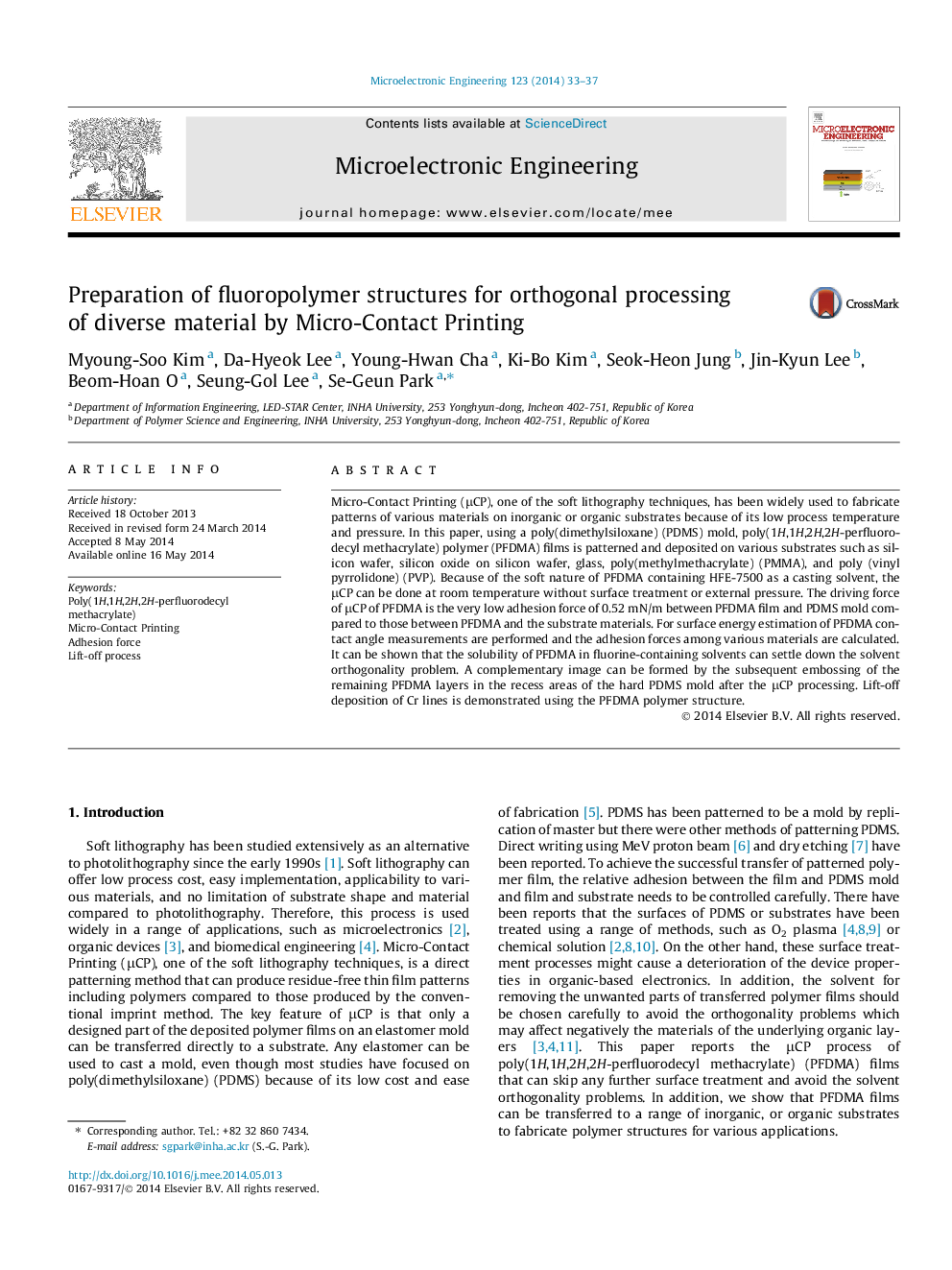| کد مقاله | کد نشریه | سال انتشار | مقاله انگلیسی | نسخه تمام متن |
|---|---|---|---|---|
| 539391 | 1450358 | 2014 | 5 صفحه PDF | دانلود رایگان |
• Micro contact printing (μCP) was applied to prepare line and spacing structures.
• 1H,1H,2H,2H-perfluorodecyl methacrylate (FDMA) can be a resist for μCP.
• The solubility of FDMA in fluorous solvents can achieve solvent orthogonality.
• The process of μCP can be done at room temperature without any external pressure.
Micro-Contact Printing (μCP), one of the soft lithography techniques, has been widely used to fabricate patterns of various materials on inorganic or organic substrates because of its low process temperature and pressure. In this paper, using a poly(dimethylsiloxane) (PDMS) mold, poly(1H,1H,2H,2H-perfluorodecyl methacrylate) polymer (PFDMA) films is patterned and deposited on various substrates such as silicon wafer, silicon oxide on silicon wafer, glass, poly(methylmethacrylate) (PMMA), and poly (vinyl pyrrolidone) (PVP). Because of the soft nature of PFDMA containing HFE-7500 as a casting solvent, the μCP can be done at room temperature without surface treatment or external pressure. The driving force of μCP of PFDMA is the very low adhesion force of 0.52 mN/m between PFDMA film and PDMS mold compared to those between PFDMA and the substrate materials. For surface energy estimation of PFDMA contact angle measurements are performed and the adhesion forces among various materials are calculated. It can be shown that the solubility of PFDMA in fluorine-containing solvents can settle down the solvent orthogonality problem. A complementary image can be formed by the subsequent embossing of the remaining PFDMA layers in the recess areas of the hard PDMS mold after the μCP processing. Lift-off deposition of Cr lines is demonstrated using the PFDMA polymer structure.
Poly 1H,1H,2H,2H-perfluorodecyl methacrylate (PFDMA) films are transfer-patterned onto various substrates by Micro-Contact Printing and embossing printing methods at room temperature. (1) Micro contact printing needs no pressure and (2) embossing is done under pressure for printing.Figure optionsDownload as PowerPoint slide
Journal: Microelectronic Engineering - Volume 123, 1 July 2014, Pages 33–37
